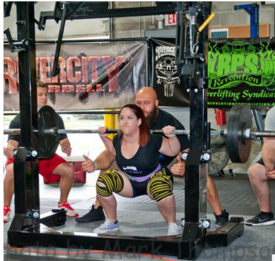Half Marathon Training Program

Runswimbike45
Posts: 7 Member
What half marathon training program has been most successful for your goals?
0
Replies
-
I've used plans from runners world.com, McMillan's book "You…Only Faster", and the FIRST plan.
The RW plan is free online but has little variance in the runs. YOF is great - you learn how to put together a training plan that suits you as a runner, and I liked FIRST 'cause you train hard for 3 runs per week and then do cross training on other days.
A few weeks back, I picked up the Hanson's book on training for a half and was underwhelmed. I admit that I skimmed through much of it because it repeated a lot of material that I've read elsewhere so I should go back and read it thoroughly.0 -
I have used a couple different Hal Higdon plans for my half's and for my one full. I think they're solid. I'm going to mix it up a little and try something different for my next full but not because I didn't like Hal's plans.0
-
I used the FIRST training program for my first half last year. Running 3 days a week worked well for my schedule at the time.0
-
For my first half I used the runners world break 2:30 plan and I followed it religously. I have to say, it worked. I had only been running for about 6 weeks when I started the plan but i was able to break 11 min miles for the race and i finished feeling really good. They have timed plans for more advanced levels too. Since then I've used modified hal higdon plans for my last 4 halfs. Works for me.0
-
I have used Hal Higdon's programs.0
-
I used Galloway, but I had to tweak the distances some. My only goal was to finish though...I'm not sure I'd follow that program if I was looking to beat a certain time. It really wasn't that many miles per week, but for a beginner just looking to complete a half it was fine.0
-
A plan that was written by a coach with my specific fitness in mind.
All the off the shelf plans should only be considered as a framework that may require some tweaking to meet your specific needs. If you are a true beginner, using Galloway might be the way to go if you just want to cover the distance (I'd suggest working on a 27 minute 5K first, but that's just me). If you have been running for a while and you are looking to break 2 hours, then you are going to need a plan with more miles (volume) than would someone just starting out.0 -
A plan that was written by a coach with my specific fitness in mind.
All the off the shelf plans should only be considered as a framework that may require some tweaking to meet your specific needs. If you are a true beginner, using Galloway might be the way to go if you just want to cover the distance (I'd suggest working on a 27 minute 5K first, but that's just me). If you have been running for a while and you are looking to break 2 hours, then you are going to need a plan with more miles (volume) than would someone just starting out.
I'm curious about this. Why do you recommend working on a faster 5k first? My 5k was 35 mins last I checked, although I haven't run that distance for speed very recently. I'm just not a fast runner. My half was done in 2:55. Very slow, but I did it. I still have 40 pounds to lose, so I'm sure I'll speed up some as the weight continues to come off. Is it okay to continue building distance without being able to go fast? I'm considering a full marathon this fall, but again my goal would be to finish. I know I won't even be able to run the whole thing. Do your recommendations change for runners who aren't necessarily looking to be competitive?0 -
A plan that was written by a coach with my specific fitness in mind.
All the off the shelf plans should only be considered as a framework that may require some tweaking to meet your specific needs. If you are a true beginner, using Galloway might be the way to go if you just want to cover the distance (I'd suggest working on a 27 minute 5K first, but that's just me). If you have been running for a while and you are looking to break 2 hours, then you are going to need a plan with more miles (volume) than would someone just starting out.
I'm curious about this. Why do you recommend working on a faster 5k first? My 5k was 35 mins last I checked, although I haven't run that distance for speed very recently. I'm just not a fast runner. My half was done in 2:55. Very slow, but I did it. I still have 40 pounds to lose, so I'm sure I'll speed up some as the weight continues to come off. Is it okay to continue building distance without being able to go fast? I'm considering a full marathon this fall, but again my goal would be to finish. I know I won't even be able to run the whole thing. Do your recommendations change for runners who aren't necessarily looking to be competitive?
For the newer(ish) runner, getting to a 27:00 5K (around 8:45 pace) would mean that would have to increase their weekly volume to somewhere around 20 to 25 miles per week. By doing this, they would be developing an aerobic base which is critical for success in the longer distances.
I believe that too many new runners have the mindset that they have to run a half marathon to be a runner or run a full marathon to be a runner and that just simply is not the case. I'm an advocate of taking it slow when you start. I'm talking about in the magnitude of months and years. I see far too many runners start out and decide they want to do a half and end up injured half way through training. That happens because your body needs time to adapt to the rigors of higher mileage. My recommendation for those wanting to run a marathon is to have a MINIMUM of 12 to 18 months of consistent 20 to 25 mile weeks. In my personal opinion, I still think they need more. 24 months of 40 mile weeks would be much better.
If the goal is to find a healthy exercise that you love to perform and that you can do until you drop, doesn't it make sense to be conservative so you can keep doing it for a long time?0 -
I am using halfmary.com
EDIT: Half-mary does plans for 1/2's and full marathons. It only reflects mileage as "easy/slow" and "long". I highly recommend incorporating in speedwork, tempo runs, and lots of HILLS.0 -
There is a wealth of information at this link too.
http://www.outsideonline.com/fitness/running/road-running/10-Tips-To-Run-Your-Best-Half-Marathon.html0 -
I am using halfmary.com
EDIT: Half-mary does plans for 1/2's and full marathons. It only reflects mileage as "easy/slow" and "long". I highly recommend incorporating in speedwork, tempo runs, and lots of HILLS.
For many beginning runners, adding those components to the training program can actually be counterproductive as they can leave you too fatigued to get in the appropriate mileage, which is what is going to build your aerobic base. You need aerobic base to get through those distances before you need anything else.0 -
I am using halfmary.com
EDIT: Half-mary does plans for 1/2's and full marathons. It only reflects mileage as "easy/slow" and "long". I highly recommend incorporating in speedwork, tempo runs, and lots of HILLS.
For many beginning runners, adding those components to the training program can actually be counterproductive as they can leave you too fatigued to get in the appropriate mileage, which is what is going to build your aerobic base. You need aerobic base to get through those distances before you need anything else.
I agree that you need to build your aerobic base as a beginner.
Intermediate runners (and you should classify yourself as one if you are running 13.1 miles ) if they have the drive, should have options to challenge themselves. These challenges are what strengthen us as runners both mentally and physically. Also, running with "legs that feel like rocks" can be quite a positive experience mentally as long as you listen to your body and avoid injury.
) if they have the drive, should have options to challenge themselves. These challenges are what strengthen us as runners both mentally and physically. Also, running with "legs that feel like rocks" can be quite a positive experience mentally as long as you listen to your body and avoid injury.
I personally feel a bit stiffled by the "one size fits all approach" when it comes to training plans that focus just on the getting the miles in. I need the variety of speed, hills and obstacles overcome. That is what make me feel most alive. I will gladly walk around like a zombie the next day for a great day of intervals, fartleks, and tempos. As was mentioned previously in this thread, most of these plans are basic templates. Every runner has and should take advantage of their internal motivation and "kick it" home0
This discussion has been closed.







